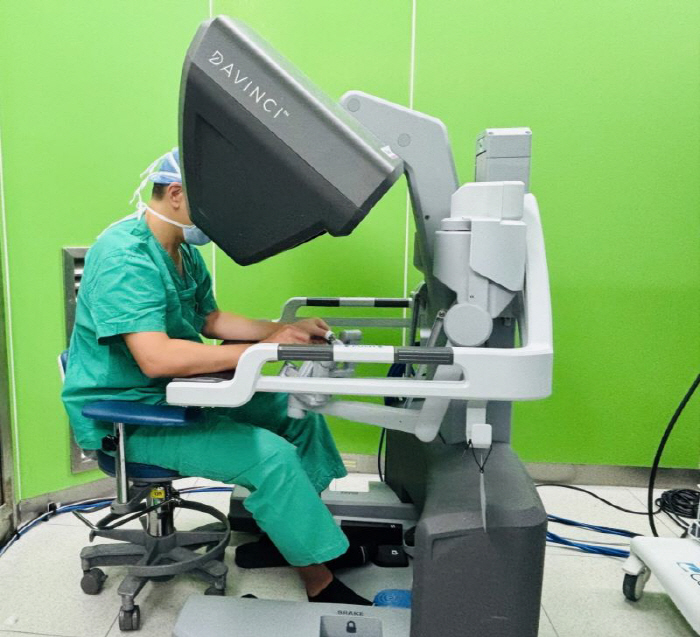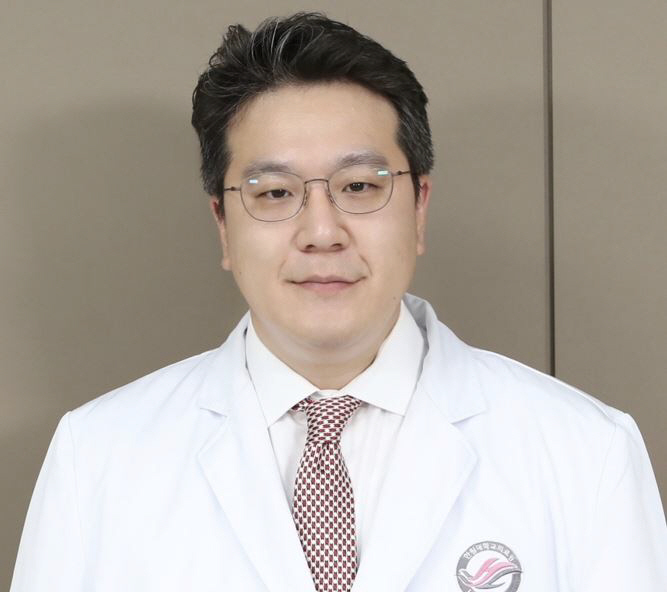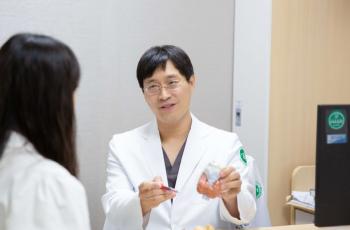Hallym University Sacred Heart Hospital proves the safety and effectiveness of Korea's first prostate cancer light bladder single-hole robotic surgery...More than double the rate of urinary incontinence recovery
Aug 26, 2025
|
The new prostate cancer surgery method introduced by Hallim University Sacred Heart Hospital for the first time in Korea is more than doubling the speed of recovery of incontinence compared to the existing surgery.
The first laparoscopic single-hole robot (Davinci SP) surgery in Korea performed by Professor Jeong Jae-hoon of the Department of Urology at the Robot Surgery Center is a high-level prostate cancer surgery that is performed only inside the bladder without using the abdominal cavity. This surgery has all the advantages of existing porous robotic surgery, such as preserving bladder and neck and neurovascular bundles, securing urethral lengths, and reconstructing the anterior and posterior prostate, and has the advantage of being easy to return to daily life due to fast recovery of incontinence, low pain, and rapid recovery.
In the past, prostate cancer surgery has attracted attention from the Retzius sparing technique for rapid urinary incontinence recovery. This surgery is a method of removing the prostate by approaching the prostate under and behind the prostate without dropping the bladder from the abdominal wall, and the urination control ability after surgery was excellent, but the positive rate of the cut surface (the percentage of cancer cells remaining in the cut surface) increased from around 15% to 40%.
The new surgery method, performed by Professor Chung Jae-hoon, does not remove the bladder from the abdominal wall, but only operates inside the bladder, which helps to preserve the function of surrounding tissues, preserve urinary incontinence, preserve sexual function, and recover early. In particular, elderly prostate cancer patients are often exposed to chronic disease risk factors such as diabetes, high blood pressure, and arteriosclerotic cardio-cerebrovascular disease, but since they do not go through the abdominal cavity, intestinal adhesion and intestinal obstruction can be prevented.
This surgical method began to attract global attention in 2023 when Professor Kaouk of the Cleveland Clinic in the U.S. conducted 100 cases and reported them to international journals, and in Korea, only Professor Jeong Jae-hoon is conducting it.
Since the surgery is performed by securing a normal field of view through radial bladder rather than intraperitoneal surgery, it does not increase the positive rate of the cut surface, which is the advantage of obtaining both oncological and functional surgical results.
However, since single-hole robotic surgery through radial bladder without using abdominal cavity uses a narrow space called bladder instead of a large space called abdominal cavity, accurate resection range design and proficiency of the surgeon are required.
Professor Jeong Jae-hoon "Since this surgical method does not dissect the pelvic cavity, it helps minimize muscle damage, rapid recovery of urinary capacity, and recovery of urinary incontinence and impotence."The new surgical method is meant to improve not only the cure rate of cancer, but also the patient's daily recovery rate after surgery.'
The procedure was published in the international journal 『Journal of Urological Oncology" under the title 『Early Experience of the Single-Port Robotical Radiological Probiotic: Case Series』. In addition, it received high attention from the medical community at home and abroad by winning the 2024 Best Paper Award, selected by the Korean Society for Oncology and Evaluation of Safety and Effectiveness.
Prostate cancer is difficult to detect early because there are few initial symptoms, and it can affect the quality of life due to urinary incontinence and decreased sexual function after surgery. PSA tests and regular checkups are essential if there are risk factors such as old age, family history, and obesity. There is a high possibility of recurrence even after surgery, so thorough follow-up is necessary.
|
This article was translated by Naver AI translator.















